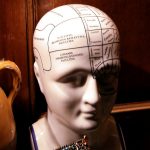Science And Research

Morning sickness, strange eating habits and weight gain are all symptoms closely associated with early pregnancy. But what if they were actually symptoms of an eating disorder, well-masked behind the veil of a bulging belly and impending motherhood? A study from the University College London (UCL) found that one in 14 women suffers from an …
Read More

A specific bacterial protein that can influence appetite regulation might explain a biological basis for certain eating disorders like anorexia or binge eating, according to new research. Published in the journal Translational Psychiatry, the study demonstrated how the relationship between the gut and brain might explain the dysregulation of food intake. Certain bacteria, like Escherichia …
Read More

People with eating disorders who also have attention deficit hyperactivity disorder (ADHD) tend to have poorer prognoses than patients without impulsivity issues, according to new research. Researchers from Bellvitge Biomedical Research Institute (IDIBELL), Bellvitge University Hospital and Vall d’Hebron University Hospital found that ADHD symptoms are more likely to be found in patients with eating …
Read More

An Alzheimer’s drug that helps regulate compulsivity could reduce the urge to binge eat, according to a new study published in Neuropsychopharmacology. Mematine, a neuroprotective drug, helps to suppress the triggers associated with impulsive behavior, like binge eating. “We found that memantine, which blocks glutamate NMDA receptors, blocks binge eating of junk food, blocks the …
Read More

As an outsider, it can be difficult to understand why a thin anorexic sees a fat person in the mirror. But recent research on brain imaging showed that people with body dysmorphic symptoms actually misjudge the way a body really looks–and that anorexics tend to have poorer “perceptual awareness” of their own figures. Connection error …
Read More

New research from the University Health Network in Toronto suggests that some anorexia and bulimia patients might benefit from targeted, noninvasive magnetic brain stimulation. The procedure may have the ability to help minimize or relieve binge eating and purging behaviors, said study author Dr. Jonathan Downar. Brain stimulation Doctors in the study used a procedure …
Read More

Modern women are constantly encouraged to accept their bodies–to love themselves no matter what shape or size. They’re supposed to rise above negative cultural stereotypes, especially ones that have to do with being ugly or unlovable if you’re overweight. Heavy issues But it’s not that simple, a recent study found. It seems that overweight women …
Read More

A simple recipe search on Google can yield hundreds of thousands of options for the home cook. Yet for people who have special diets or are concerned about proper nutrient balance, do online recipes from top food bloggers really deliver healthy options? This was the question that researchers from Simmons College in Boston asked in …
Read More

Isolation and eating disorders go hand in hand. After all, if you’re struggling with anorexia or bulimia, advertising it to the world is the last thing you want. So, many people with eating disorders find themselves spending more time alone–or at least enough time to engage in their disordered eating behaviors, like binging, purging or …
Read More

While society tends to view eating disorders as a teenage or younger adult problem, growing evidence suggests that older individuals struggle with anorexia, bulimia or binge eating disorder more than we might think. In Ireland, particularly, a new report reveals that about one-third of people with eating disorders are between the ages of 25 and …
Read More
 Eating Disorder Self Test. Take the EAT-26 self test to see if you might have eating disorder symptoms that might require professional evaluation. All answers are confidential.
Eating Disorder Self Test. Take the EAT-26 self test to see if you might have eating disorder symptoms that might require professional evaluation. All answers are confidential.
Find a Treatment Facility Near You
Click on a state below to find eating disorder treatment options that could be right for you.










 Eating Disorder Self Test. Take the EAT-26 self test to see if you might have eating disorder symptoms that might require professional evaluation. All answers are confidential.
Eating Disorder Self Test. Take the EAT-26 self test to see if you might have eating disorder symptoms that might require professional evaluation. All answers are confidential.